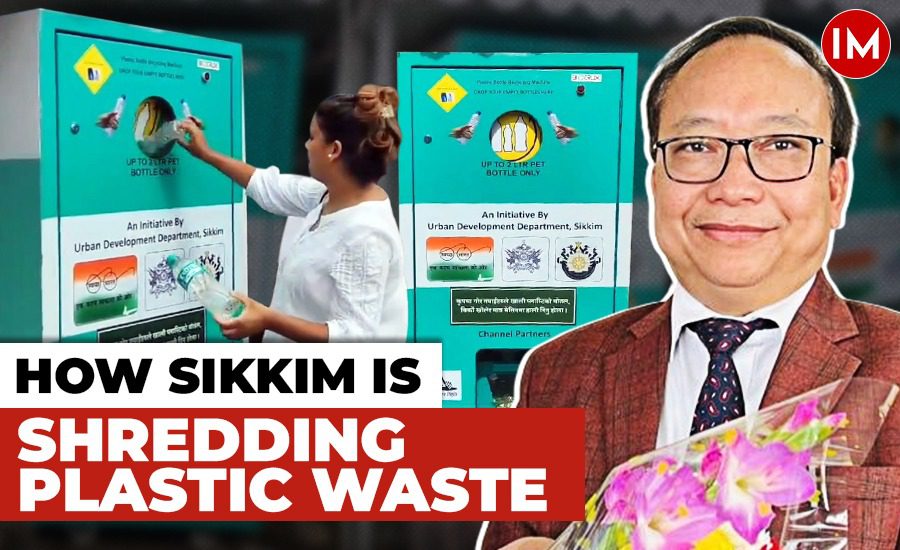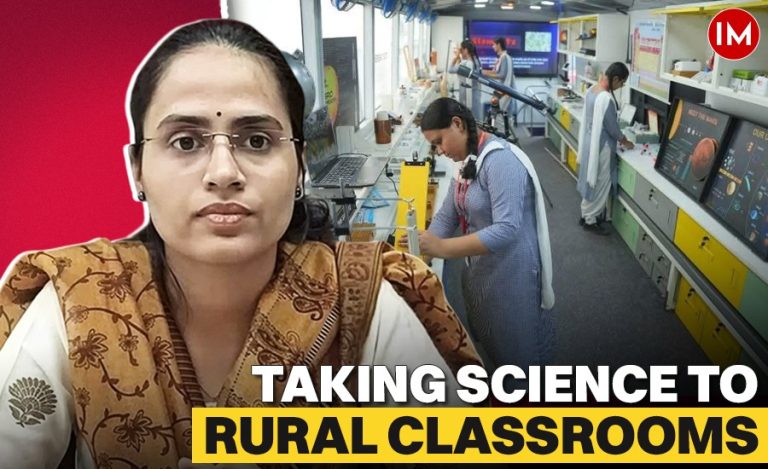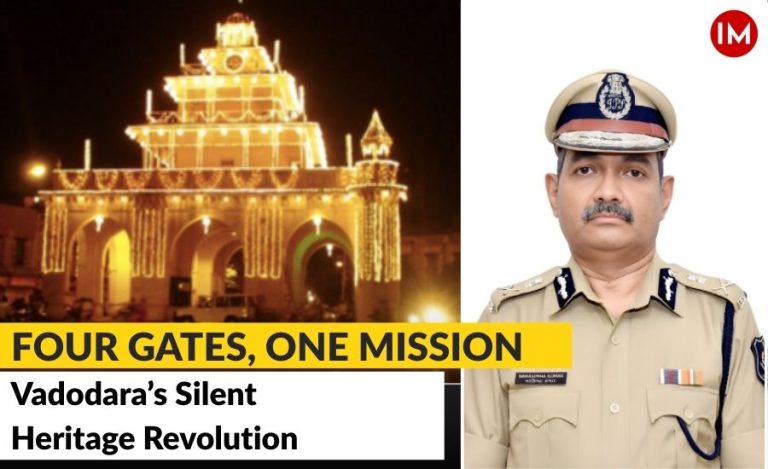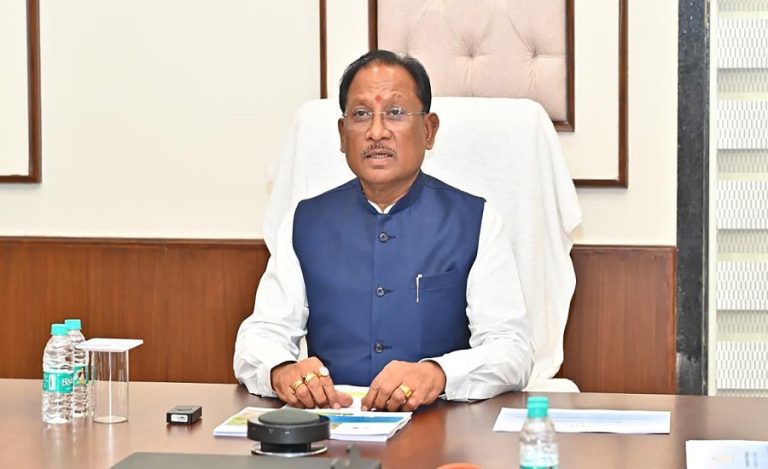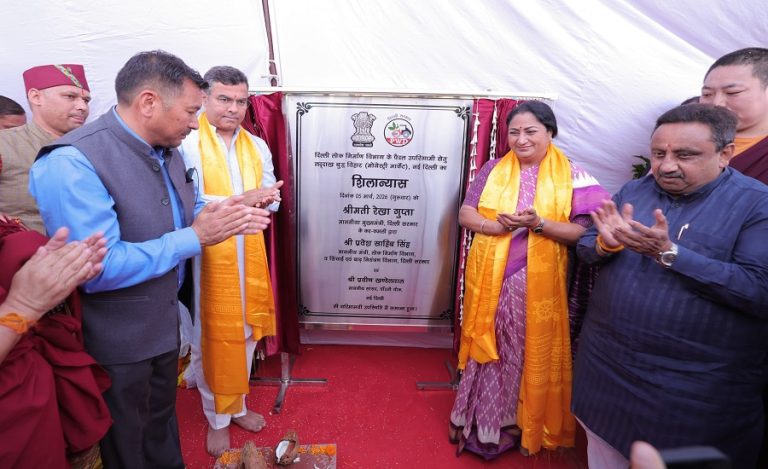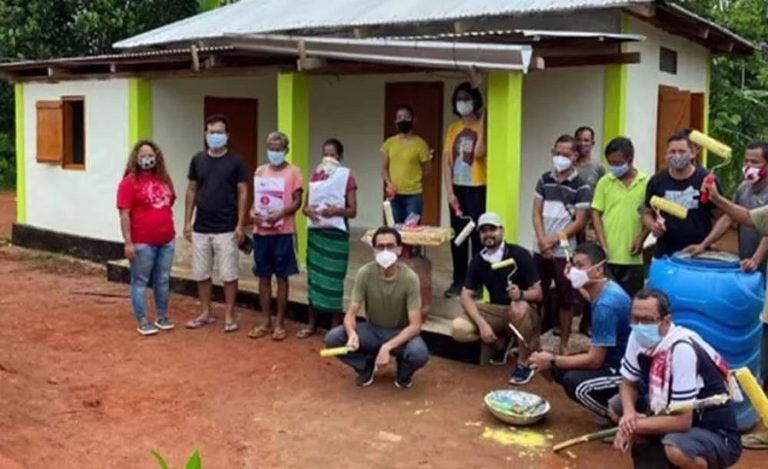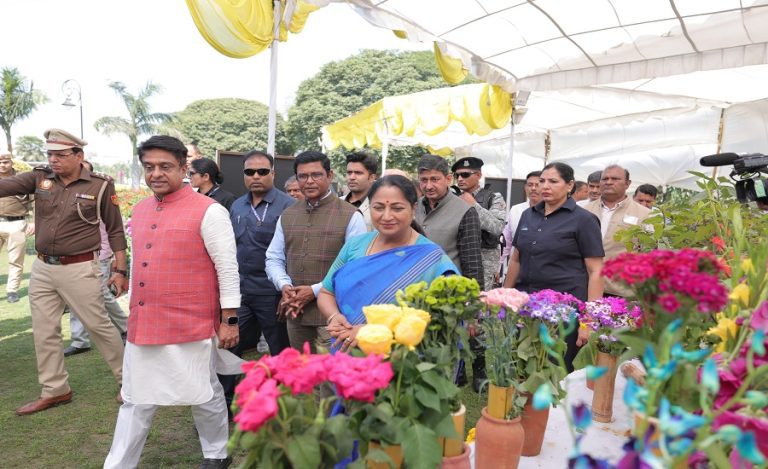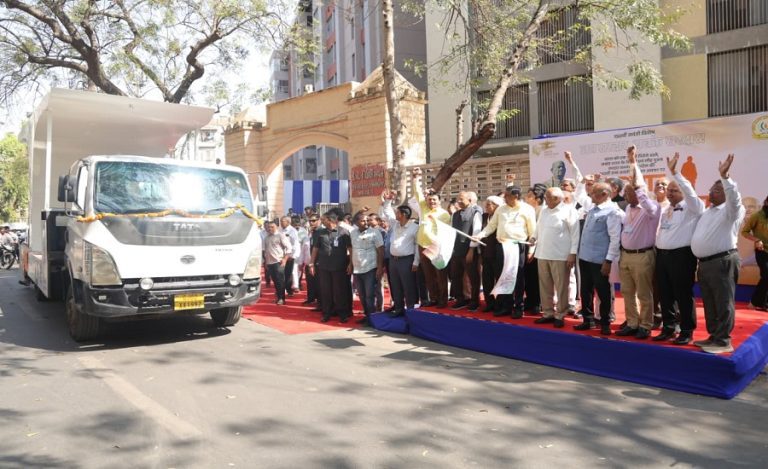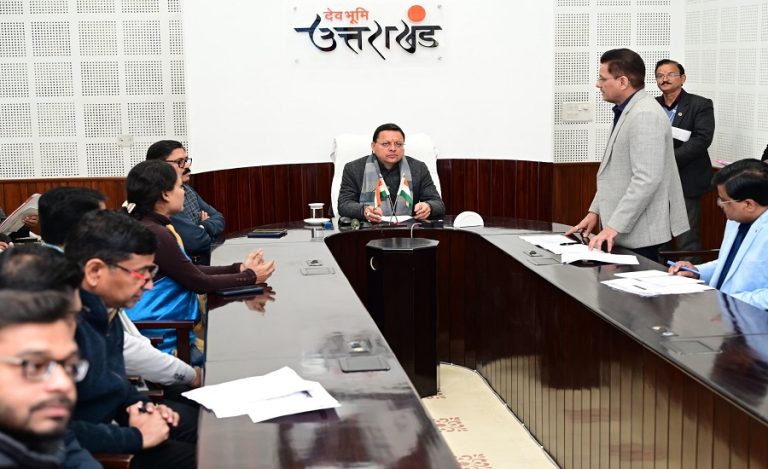The increasing use of plastic has become a global concern, causing severe harm to the environment and jeopardizing human health. The North-Eastern state of Sikkim recognized this issue early on and implemented strict regulations to address it. Despite being a popular tourist destination, plastic waste remains a challenge, and Sikkim is continuing its fight against it with innovative initiatives.
To combat single-use plastic, Sikkim is installing bottle-shredding machines across all urban local bodies. So far, more than 15 of these machines have been installed. These machines not only shred plastic but also generate revenue from the processed material.
Indian Masterminds spoke with Mr. M.T. Sherpa, Secretary of the Urban Development Ministry of Sikkim and a promotee IAS officer of the 2020 batch, to learn more about this initiative.
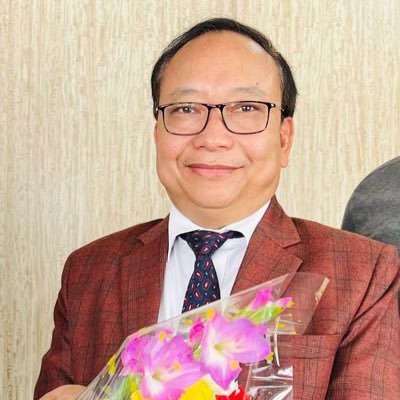
COMBATTING PLASTIC
Sikkim, which became the first Indian state to ban disposable plastic bags in 1998, is now among the pioneers in targeting single-use plastic bottles. In 2022, the Sikkim Tourism Board announced a ban on single-use plastics, including packaged water bottles up to two liters. However, as tourist numbers surged during peak seasons, concerns about plastic waste increased.
Mr. Sherpa explained, “Currently, the main issue is that locals generally manage their plastic waste effectively, but tourists often bring plastic items with them, which exacerbates the problem. Although we have banned water bottles up to two liters, other single-use plastics, such as cold drink bottles from brands like Coke and Pepsi, are still sold here. These bottles are discarded after use and contribute significantly to plastic waste.”
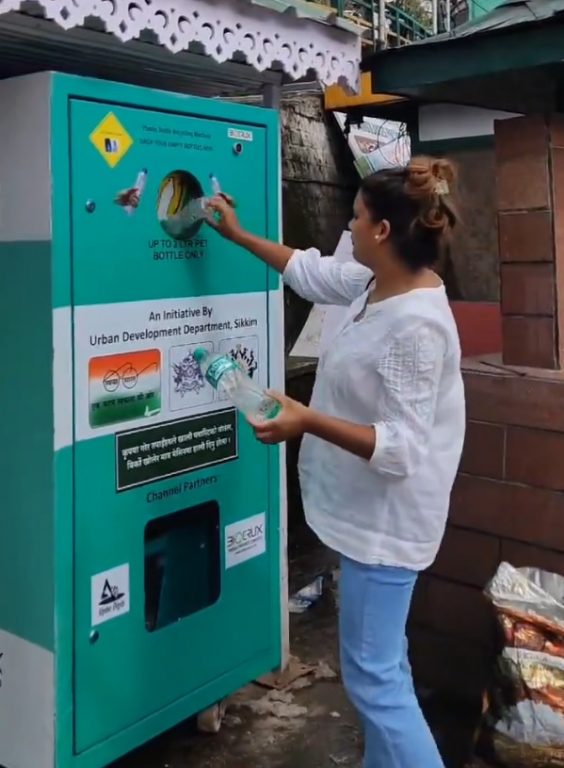
THE PET MACHINES
There are a total of seven urban local government bodies (ULBs) across the five districts of Sikkim. Gangtok district has the highest number of ULBs, with two in total. Under the Swachh Bharat Mission, the Urban Development Department has installed PET bottle shredding machines in all the ULBs. These machines are designed to handle municipal waste, such as PET (polyethylene terephthalate) bottles and aluminum cans, by shredding them for proper disposal.
Each machine operates in a single-phase power supply weighing 380kgs with wheels to move. It has a bin capacity of 1000 bottles. The Machines are made in India.
Anyone can squeeze and place their plastic bottles into the machines, which will then shred and collect the material in a secure compartment. This pilot initiative is expected to significantly reduce plastic pollution in Sikkim.
Mr. Sherpa explained, “Although the area appears very clean, we still need to address any remaining waste. To tackle this issue effectively, we have implemented the solution of installing these shredding machines in high-traffic tourist areas.”
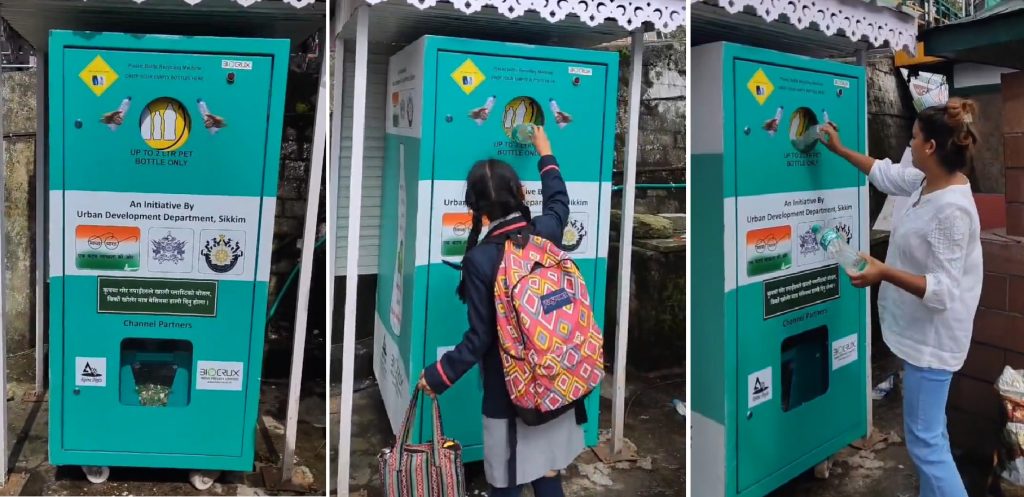
THE MAIN CONCERN
The main issues are with cold drinks and other soft drink bottles. In high-traffic areas, these bottles often end up in garbage bins, which can lead to inefficient recycling and increased costs. “By using the shredding machines, we can process these plastics more effectively, making them easier to sell and recycle,” he added.
Although water bottles up to two liters are banned in Sikkim, tourists sometimes still carry and leave them behind. Additionally, plastic bottles from cold drinks and other beverages remain a concern. While bottles larger than two liters are permitted, they can be squeezed and shredded in these machines too.
THE REVENUE
After shredding, the processed plastic becomes a marketable item that can be sold, generating revenue for the ULBs. These machines can handle plastic bottles up to 5 liters in size after they have been squeezed.
The shredded plastic is collected at the bottom of the machine and later sold, providing financial benefits to the government.
“Under the initiative “Sunaulo Sikkim, Samridh Sikkim,” we aim to minimize plastic use and reduce its impact on the environment, striving for a cleaner and more sustainable Sikkim,” Mr Sherpa added.

